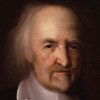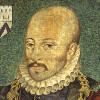“ why may not a wise man dare to do the same in all things that he dared to do in those he had learned of his masters, established by the common consent of the school, whereof he is a professor and a member? If it be a child that judges, he knows not what it is; if a wise man, he is prepossessed. ”
Michel de Montaigne, The Essays of Michel de Montaigne (1580). copy citation
| Author | Michel de Montaigne |
|---|---|
| Source | The Essays of Michel de Montaigne |
| Topic | school learning |
| Date | 1580 |
| Language | English |
| Reference | |
| Note | Translated by Charles Cotton |
| Weblink | http://www.gutenberg.org/files/3600/3600-h/3600-h.htm |
Context
“You are permitted to embrace Aristotle’s opinions of the immortality of the soul with as much zeal as your honour and life, and to give the lie to Plato thereupon, and shall they be interdicted to doubt him? If it be lawful for Pantius to maintain his opinion about augury, dreams, oracles, vaticinations, of which the Stoics made no doubt at all; why may not a wise man dare to do the same in all things that he dared to do in those he had learned of his masters, established by the common consent of the school, whereof he is a professor and a member? If it be a child that judges, he knows not what it is; if a wise man, he is prepossessed. They have reserved for themselves a marvellous advantage in battle, having eased themselves of the care of defence. If you strike them, they care not, provided they strike too, and they turn every thing to their own use.”
source


